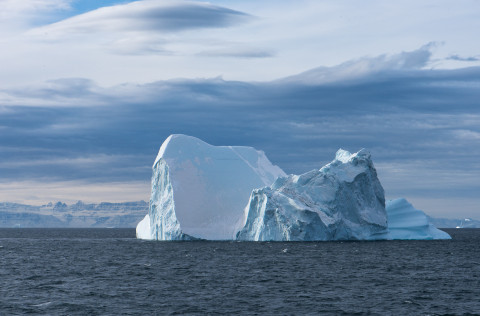- EU projects
- Research
- Fish tagging
- Lumpfish research
- Oceanography
- Seabed mapping
- Arnarfjörður
- Drekasvæði
- Ísafjarðardjúp
- Jökulbanki
- Jökuldjúp
- Kolbeinseyjarhryggur and adjacent area
- Kolluáll
- Langanesgrunn
- Látragrunn
- Nesdjúp
- Reykjaneshryggur and adjacent area
- Selvogsbanki
- South of Selvogsbanki
- South of Skeiðarárdjúp
- South of Skerjadjúp
- Southeast of Lónsdjúp
- Southwest of Jökuldjúp
- Suðausturmið
- Suðurdjúp
- Vesturdjúp
- East of Reykjaneshryggur
- Vestfjardarmid
- Seal research
- Whale Research
- Advice
- About
Decreasing glacier cover threatens biosphere in rivers worldwide
18. December 2017
A recent study by an international group of research scientists shows that invertebrates in glacier- rivers react in the same way all over the world to decreasing glacier cover. The study is covered in the latest issue of Nature Ecology & Evolution published today. Among those involved in the study are Jón S. Ólafsson, limnologist at MFRI, and Gísli Már Gíslason, professor at the Faculty of Life and Environmental Sciences, University of Iceland.
Almost 95% of the earth's animals are categorised as invertebrates, and the group is extremely varied. Invertebrates play an important role in the world's ecosystems; e.g. by maintaining fertility in the soil, cleaning water and by playing a part in the circulation of carbon. It is thus vital to monitor how those organisms react to environmental changes in order to prevent species from going extinct; with the decay of biological diversity that entails.
The study in Nature Ecology and Evolution focuses especially on invertebrates in glacial rivers all over the world, and the effect decreasing glacier cover and global warming had on their way of life. The reason for choosing glacier-rivers is that they are more often untouched and less polluted by man than other rivers.
The research was conducted in 170 places, in nine different mountainous terrains, on three continents. The scientists came from 13 research institutes in seven countries.
Data for over a million invertebrates were collected for the research; mapping the common functional traits of different vertebrates in these diverse locations. Functional traits are traits that change in regards of environment, such as size, movement, life span and nurturing habits. These traits have a decisive say in the adaptability of species.
As mentioned above the study showed that invertebrates in glacier-rivers react in the same way all over the world to decreasing glacier cover. The reaction is largely dependant on whether the organisms are highly mobile; able to move to another area and adjust to a different environment. This means that in areas where environmental changes are rapid, like in the case of glacial regression, the organisms that are less mobile will not be able to change with the environment and thus be vulnerable. This can have a considerable impact on glacial rivers' ecosystems.
The research scientists emphasize the importance of gaining a better understanding of changes in the functional traits of invertebrates in decreasing glacier cover due to the the fundamental role of these organisms in the world's ecosystem. They, furthermore, point out that the research results reveal the possibility of using the research methods to predict the impact of environmental changes on invertebrates in other ecosystems; such as the ocean, in soil and even in cities.
The article can be found on the Nature Ecology & Evolution website.

